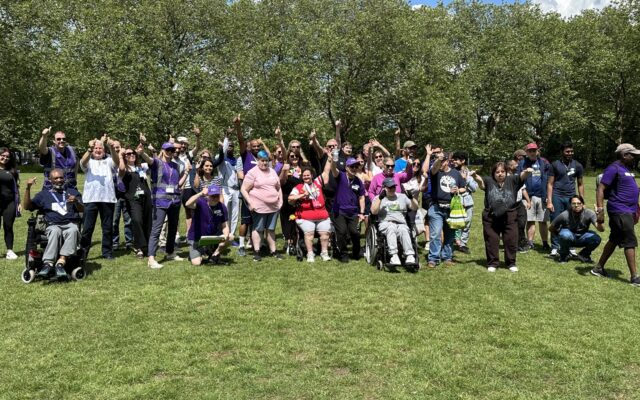Good relationships and moving on
Fish R, Morgan H (2021) “Them two are around when I need their help”: the importance of good relationships in supporting people with learning disabilities to be “in a good space”. British Journal of Learning Disabilities; 49(3):293-302. https://doi.org/10.1111/bld.12410
This study arises from the seemingly insurmountable problem, despite repeated policy initiatives, of large numbers of people with learning disabilities remaining locked up in secure settings.
Noting that most people in such settings are both physically and emotionally distant from friends and family, the research focused on relationships with staff. These become central to people ‘s lives and are critical for a successful transition to making a home in the community.
The research involved reanalysing data from two earlier qualitative studies that had used field notes and interview transcripts with people with learning disabilities living in such settings and the staff who worked with them.
While the purpose of the original study was service improvement, this revisiting of the data explored relationships between staff and residents in depth, which emerged as a significant theme in both studies.
The study found the critical issue in staff-resident relationships was that when they were positive, they enabled the person to be “in a good space”, which was seen by all participants as crucial to being able to move on.
The analysis identified four main themes around positive relationships: their characteristics; barriers to them; how they can be encouraged; and how they support people to move on.
Characteristics of positive relationships included a comforting approach, friendliness, reassurance, having time for people, reciprocity, fairness, helpfulness and availability. All these have to be navigated and realised within professional boundaries. When achieved, distress, aggression and self-harm would reduce.
Barriers to such relationships included: negative staff perceptions of the ability of people with learning disabilities to manage social relationships; staff not understanding communication through body language and other signals; and the use of restrictive practices, containment and control.
The authors conclude that flattening the hierarchy between staff and residents is key when supporting people with learning disabilities to move on and that soft skills are critical in enabling them to transition back to their community.

Adult transition and severe disability
Jacobs P, Quayle E, Wilkinson H, MacMahon K (2021) Relationships matter! – Utilising ethics of care to understand transitions in the lives of adults with severe intellectual disabilities. British Journal of Learning Disabilities; 49(3):329-340. https://doi.org/10.1111/bld.12380
Noting that most research tends to focus on early transition experiences, such as those during school years, this study examines transitions in adulthood.
The authors look at transitions in the lives of people with severe and profound disabilities. They are often excluded from research, as studies generally focus on those with mild or moderate learning disabilities.
This study follows the transition journeys of six adults with severe intellectual disabilities, including transferring to adult services and moving out of the family home.
The research is based on observations, document reviews and interviews with families and professionals in Scotland.
Taking what they call an “ethics of care” perspective, the authors aimed to explore the extent to which each person had people in their lives able to listen to them and if, in turn, those close to them were listened to during times of transition.
While there was “a clear indication that the six adults were involved in the practical parts of transitions and that they were listened to by those in their immediate environment exploring the organisational parts of the process showed a different picture”.
Parents mostly described how their son or daughter could not be involved because they were unable to understand abstract concepts. However, at the same time, all parents saw their child as a person able to express their feelings and preferences, stressing that others needed to know them well to be able to properly listen to them.
Education, health and social care professionals, even those who knew people very well, reported they felt they had little power to influence what was decided within a social care system stretched to its limits and with little choice. Decisions were based on options available.
Additionally, the report suggests that professionals values and beliefs about normality influenced their judgments on what a good life should look like for people with severe intellectual disabilities in adult services. This seemed to be connected to them struggling at times to take into account the perspective of the person and what they knew about them through their daily interactions.





